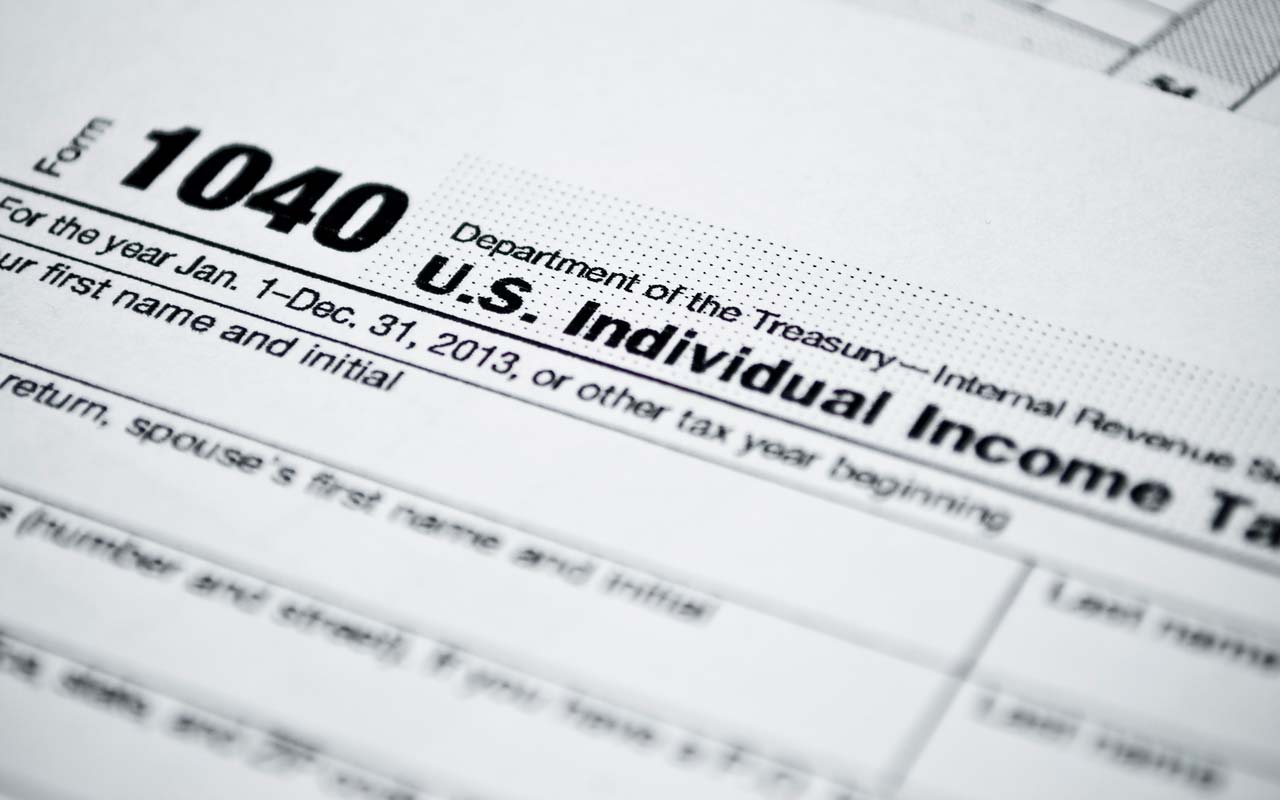8 Social Security Myths Debunked
Social Security provides critical benefits to more than 50 million people a year; almost 170 million workers contribute a chunk of their paycheck, to the tune of $900 billion annually, to keep those benefits flowing.


Profit and prosper with the best of Kiplinger's advice on investing, taxes, retirement, personal finance and much more. Delivered daily. Enter your email in the box and click Sign Me Up.
You are now subscribed
Your newsletter sign-up was successful
Want to add more newsletters?

Delivered daily
Kiplinger Today
Profit and prosper with the best of Kiplinger's advice on investing, taxes, retirement, personal finance and much more delivered daily. Smart money moves start here.

Sent five days a week
Kiplinger A Step Ahead
Get practical help to make better financial decisions in your everyday life, from spending to savings on top deals.

Delivered daily
Kiplinger Closing Bell
Get today's biggest financial and investing headlines delivered to your inbox every day the U.S. stock market is open.

Sent twice a week
Kiplinger Adviser Intel
Financial pros across the country share best practices and fresh tactics to preserve and grow your wealth.

Delivered weekly
Kiplinger Tax Tips
Trim your federal and state tax bills with practical tax-planning and tax-cutting strategies.

Sent twice a week
Kiplinger Retirement Tips
Your twice-a-week guide to planning and enjoying a financially secure and richly rewarding retirement

Sent bimonthly.
Kiplinger Adviser Angle
Insights for advisers, wealth managers and other financial professionals.

Sent twice a week
Kiplinger Investing Weekly
Your twice-a-week roundup of promising stocks, funds, companies and industries you should consider, ones you should avoid, and why.

Sent weekly for six weeks
Kiplinger Invest for Retirement
Your step-by-step six-part series on how to invest for retirement, from devising a successful strategy to exactly which investments to choose.
Social Security provides critical benefits to more than 50 million people a year; almost 170 million workers contribute a chunk of their paycheck, to the tune of $900 billion annually, to keep those benefits flowing. You'd think with all the people and money involved that we'd all understand exactly how the program works.
Not so. The complexity of the system, its evolution and a shift in demographics that threatens its solvency have created confusion over what Social Security can and will deliver . . . and even whether it will continue to exist. Here are eight of the most common myths and misconceptions, along with explanations that set the record straight.

The Maximum Social Security Benefit Is $2,600
Social Security benefits are primarily based on two variables: your highest earnings over 35 years and your age when you file for benefits. The maximum benefit for someone retiring at full retirement age (66 for people born in 1943 through 1954) in 2016 is $2,639 a month. (The average monthly benefit this year is about half that much.) The maximum benefit normally increases each year, but it can fall, too, as it did in 2016 from the 2015 level.
The age at which you claim is also key. For each year you wait after full retirement age until 70, you’ll get an 8% boost in benefit. Again, assuming your 35 highest-earning years qualifies you for the highest benefit, you’d get $3,576 at age 70. Conversely, if your full retirement age is 66, you’ll take a 25% cut in the benefit if you claim at 62, the earliest date at which you’re eligible. In that case, the maximum monthly amount is $2,102 in 2016.
You might be wondering why the maximum benefit at 70 isn’t 132% of the amount you’d get at 66 ($2,639), nor is the benefit at age 62 a 25% reduction of $2,639. It’s complicated, but suffice it to say that each individual’s benefit turns on the benefit levels in the year a person turns 62. So, a beneficiary who claims at age 62 will have a different base level from one who turns 66 in the same year, and a beneficiary who turns 70 that year will have yet another base level.

Social Security Will Go Broke Within the Next 20 Years
Social Security is essentially a pay-as-you-go system. Most everyone contributes 6.2% of each paycheck, and employers kick in an equal amount (self-employed folks pay the full 12.4%). As long as payroll taxes exist, Social Security will never go broke.
Until 2010, payroll taxes brought in more than enough to cover benefits for retirees and other recipients. The surplus went into a trust fund, which is invested in special Treasury securities. The fund also reaps interest on the securities plus taxes on the benefits of some beneficiaries.
Problem: In recent years, more money has gone out in benefits than has come in from payroll taxes. The government has been using the interest on the securities to cover the shortfall but will have to start redeeming the securities themselves by 2020. Failing a fix by Congress to raise taxes or cut benefits, or both, the trust fund will run out of money in 2034.
That doesn't mean benefits will disappear altogether. Payroll taxes will still be enough to cover 79% of promised benefits. Will a 21% reduction in benefits really happen? Probably not. Much as Congress dislikes confronting hard choices, it is not likely to risk the reaction of millions of Social Security beneficiaries (read voters) to the idea of such a cut. Expect a solution to be pounded out long before 2034.
- SEE ALSO: How Well Do You Know Social Security?

You Don't Have to Pay Taxes on Social Security Benefits
For millions of beneficiaries, that’s wishful thinking. If your combined income—that is, adjusted gross income not including any Social Security benefits plus any nontaxable interest plus half your benefits—is between $25,000 and $34,000 for singles and $32,000 to $44,000 for couples filing jointly, you'll owe taxes on up to 50% of your Social Security benefits. If your combined income exceeds the $34,000 limit for singles or the $44,000 limit for couples, you'll owe tax on up to 85% of your benefits. Just over half of all beneficiaries paid federal tax on Social Security benefits in 2015.
You may also have to pay state taxes on part of your benefits. Four states—Minnesota, North Dakota, Vermont and West Virginia—tax up to 85% of Social Security benefits. Colorado, Connecticut, Kansas, Missouri, Montana, Nebraska, New Mexico, Rhode Island and Utah also tax a portion of Social Security benefits but provide exemptions based on income or age.

Due to Social Security's Shortfall, You Won't Get Back the Dollars You Contributed to the System
Reality check: You don't get back exactly what you put into the system anyway. Benefits are based on your 35 highest-earning years. But Social Security uses a progressive formula that replaces a higher portion of income for lower earners than for high earners—not a dollar-for-dollar match of what each worker pays in. Whether you'll recoup more or less than the amount of tax you paid into the system depends on your earnings and how much tax you paid during your career, your age when you claim benefits, whether you're married, and how long you (and your spouse) live to collect benefits.
Even if Social Security did pay a dollar-for-dollar match, the dollars you contributed are not stowed in your personal lock box, awaiting you at retirement. In fact, the money you paid went to fund someone else's retirement; your benefits come from the payroll taxes of current workers.

Raising the Bar on Earnings Subject to Payroll Taxes Would Fix the System's Shortfall
Under the current system, workers pay 6.2% of their wages, up to $118,500 in 2016, to fund Social Security benefits; employers kick in another 6.2%. If you're self-employed, you pay the whole 12.4%, up to $118,500. (You and your employer also pay 1.45% each to fund Medicare Part A, which covers hospital stays. That tax has no income cap.) Some policymakers maintain that raising or eliminating the cap on payroll taxes would generate enough money to get the system back on track.
Not so, according to the Committee for a Responsible Federal Budget, a bipartisan policy group. Although removing the cap would significantly improve Social Security's finances, it wouldn't cover the shortfall altogether, partly because benefits are keyed to income. The higher the income subject to payroll tax, the higher the benefits paid out later to high earners (although not as much as the extra amount they put in), reducing the potential savings to the system.

If You Don't Claim Benefits Early, You Risk Not Getting Your Fair Share
If you claim benefits as soon as you're eligible, at 62, you get a 25% to 30% reduction in your benefit compared with what you'd get at full retirement age (66 for people born between 1943 and 1954; 67 for those born in 1960 and later). For every year you wait to take it after full retirement age, until you reach age 70, you get an 8% boost in benefits. Social Security actuaries calculate benefits with the goal of equalizing the total amount you get over your life expectancy whether you take benefits early, at full retirement age or at age 70. If you die before you reach your life expectancy, you won't get your "fair" share regardless of when you claim Social Security. If you live longer than your life expectancy, you'll get more than your allotted amount.
Fair or not, if you have reason to believe you won't reach your life expectancy, you might as well take the benefit early and enjoy the money. If you think you'll live well beyond your expected lifetime, you may be better off waiting until 70 because the bigger benefits over time will add up to much more than if you collected earlier, for a lower amount.

If You Take Social Security and Keep Working, You Must Give Back Most of Your Benefits
It's true that Social Security beneficiaries younger than full retirement (currently 66) who keep working and earn more than the cap—$15,720 in 2016—lose $1 in benefits for every $2 they earn over that cap. But this rule, known as the earnings test, eases in the year you reach full retirement age. In that year, you give up $1 for every $3 you earn over a much larger cap—$41,880 in 2016—before the month you reach your full retirement age. Starting in the month of your birthday, there's no limit on how much you can earn. Better yet, Social Security will adjust your benefits going forward with the goal of insuring that, over your life expectancy, you'll be repaid every dime you lost to the earnings test.

Once You Start Taking Social Security, You Can't Change Your Mind
Actually, you can, in a couple of circumstances.
Here's the first scenario. Say you file for benefits at 62, when you first become eligible. Because you’re claiming before full retirement age (now 66), you get a 25% lifetime reduction in benefits. Then you get a windfall and no longer need the money. If you withdraw your application within the first 12 months of filing, you can pay back the benefits you've received, interest-free, and erase the 25% reduction. When you finally do claim benefits, you get whatever you're due at the age you apply.
The second scenario: After claiming benefits early, you can ask Social Security to suspend your benefits once you reach full retirement age, up to age 70. You don't have to pay back the benefits, but neither do you erase the fact you claimed early. Your future benefits will still start from a lower base, but that base can be pumped up by the 8%-a-year delayed-retirement credits you earn after age 66. So, while claiming at 62 cuts your benefits to 75% of the age 66 level, adding four years' worth of delayed-retirement credits (32%) puts your age 70 benefit at 99% of your full retirement age check.
To learn more about either strategy, contact your local Social Security office and ask how to withdraw your application or suspend your benefit. Be aware that if you’re already enrolled in Medicare Part B, you’ll be billed for premiums that otherwise would have been subtracted from your Social Security paycheck.
Profit and prosper with the best of Kiplinger's advice on investing, taxes, retirement, personal finance and much more. Delivered daily. Enter your email in the box and click Sign Me Up.

-
 Dow Adds 1,206 Points to Top 50,000: Stock Market Today
Dow Adds 1,206 Points to Top 50,000: Stock Market TodayThe S&P 500 and Nasdaq also had strong finishes to a volatile week, with beaten-down tech stocks outperforming.
-
 Ask the Tax Editor: Federal Income Tax Deductions
Ask the Tax Editor: Federal Income Tax DeductionsAsk the Editor In this week's Ask the Editor Q&A, Joy Taylor answers questions on federal income tax deductions
-
 States With No-Fault Car Insurance Laws (and How No-Fault Car Insurance Works)
States With No-Fault Car Insurance Laws (and How No-Fault Car Insurance Works)A breakdown of the confusing rules around no-fault car insurance in every state where it exists.
-
 States That Tax Social Security Benefits in 2026
States That Tax Social Security Benefits in 2026Retirement Tax Not all retirees who live in states that tax Social Security benefits have to pay state income taxes. Will your benefits be taxed?
-
 What to Do With Your Tax Refund: 6 Ways to Bring Growth
What to Do With Your Tax Refund: 6 Ways to Bring GrowthUse your 2024 tax refund to boost short-term or long-term financial goals by putting it in one of these six places.
-
 What Does Medicare Not Cover? Eight Things You Should Know
What Does Medicare Not Cover? Eight Things You Should KnowMedicare Part A and Part B leave gaps in your healthcare coverage. But Medicare Advantage has problems, too.
-
 12 Great Places to Retire in the Midwest
12 Great Places to Retire in the MidwestPlaces to live Here are our retirement picks in the 12 midwestern states.
-
 15 Cheapest Small Towns to Live In
15 Cheapest Small Towns to Live InThe cheapest small towns might not be for everyone, but their charms can make them the best places to live for plenty of folks.
-
 15 Reasons You'll Regret an RV in Retirement
15 Reasons You'll Regret an RV in RetirementMaking Your Money Last Here's why you might regret an RV in retirement. RV-savvy retirees talk about the downsides of spending retirement in a motorhome, travel trailer, fifth wheel, or other recreational vehicle.
-
 The 24 Cheapest Places To Retire in the US
The 24 Cheapest Places To Retire in the USWhen you're trying to balance a fixed income with an enjoyable retirement, the cost of living is a crucial factor to consider. Is your city the best?
-
 The Six Best Places to Retire in New England
The Six Best Places to Retire in New Englandplaces to live Thinking about a move to New England for retirement? Here are the best places to land for quality of life, affordability and other criteria.
